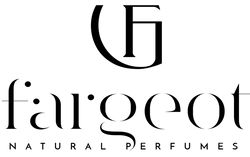Are natural perfumes truly safe?

Credit photo: Marafee
For those who prioritise their health and well-being, natural perfumes have become a popular choice. But the question remains: does being "natural" guarantee safety? The answer is not as straightforward as one might hope. Let's dive into the complexities and attempt to shed light on the matter.
Defining “safe”
According to the Oxford Dictionary, the term "safe" implies being shielded from danger or risk, minimising the likelihood of harm or loss. However, when applying this term to natural perfumes (or any product, for that matter), we must proceed with caution. Take, for instance, the fact that most natural perfumes contain alcohol, making them highly flammable and potentially hazardous near an open flame. In this regard, they cannot be deemed entirely safe.
While it may seem like a trivial point, it underscores an important aspect of the discussion. Instead of asking, "Are natural perfumes safe?" a more accurate question would be, "Are natural perfumes safer?"
Natural perfumes vs synthetic perfumes
Synthetic perfumes have enjoyed widespread popularity, dominating the market for quite some time. And they have their merits. The chemicals used in synthetic perfumes offer advantages such as scent stability, longevity, and an extended shelf life. Moreover, they often provide a cost-effective solution to recreate pleasant fragrances, ensuring affordability for consumers. In some cases, chemical alternatives have even been specifically developed to minimise allergic reactions typically triggered by botanical extracts.
However, synthetic perfumes have faced growing criticism due to the presence of harmful chemicals linked to cancer, endocrine disruption, and birth defects. Some of these chemicals may also pose environmental concerns, being non-renewable, unethically sourced, non-biodegradable, and endangering wildlife—potentially all of the above.
Rising health and environmental concerns have thus sparked the ascent of natural perfumes, which are considered comparatively safer in these regards when compared to their synthetic counterparts.
Varied safety among natural perfumes
A valid question arises: "Among natural perfumes, are some options safer than others?" The answer is "yes."
To grasp this, it is crucial to understand the regulations surrounding the usage of the term "natural" and differentiate between genuine information and potential marketing spins.
In Australia, the Therapeutic Goods Association (TGA) released guidelines in 2019 to help brands market their products as "natural." The definition of "natural" revolves around something existing in or formed by nature, not being artificial or synthetic. The key takeaway is that brands must not mislead consumers and should be capable of substantiating their claims.
The guidelines also state that a product can still be considered natural if it has undergone minimal processing and remains chemically identical to its natural form. While this allows some leeway for brands, it also creates grey areas. Additionally, goods that contain both natural and chemically synthesised ingredients may still use the term "natural" as long as the usage is not misleading. For instance, a product composed of 90% natural essential oils and 10% synthetic fragrance oils could make the claim, "Our product contains natural essential oils." While subtly spun, it might mislead less knowledgeable consumers into assuming the product is entirely natural.
Hence, it becomes imperative to read product labels attentively, discern the ingredients, and identify any potential concerns. The Australian Consumer Law and the Trade Practices Act 1974 ensure accurate labelling of cosmetic products, including the display of all ingredients in descending order of concentration. However, perfumes are exempt from such requirements due to the protection of proprietary blends and scents as trade secrets. Nevertheless, many perfumers have embraced transparency voluntarily, and consumers need only inquire about their level of openness.
In summary
So, are natural perfumes unequivocally safer? As you can tell, the answer is far from straightforward, and an individualised approach might be necessary. However, there are ways to gain a better understanding of a natural perfume's safety for you.
Concerns about a product's safety often depend on personal circumstances, such as pregnancy, allergies, or even recovering from serious illness. In such cases, seeking medical advice becomes crucial to receive guidance tailored to your specific situation.
We strongly recommend examining all the ingredients in your natural perfume and ensuring the perfumer provides complete transparency. By discussing each ingredient with your healthcare professional, you can better comprehend the safety of using such a product. Understanding and making informed choices are vital for your well-being.

